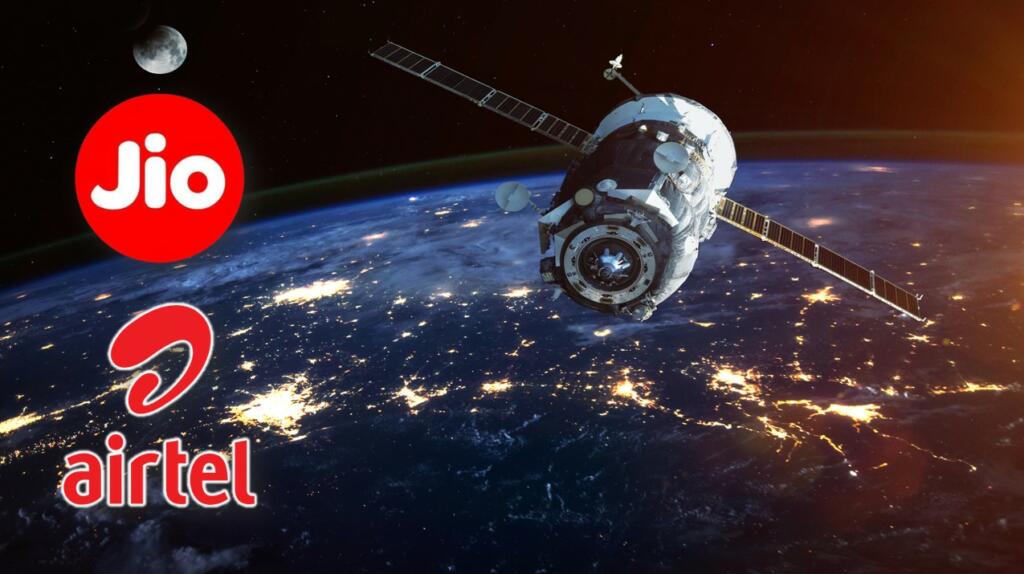- After denying Starlink’s entitled request, Modi Government is set to usher in with policy for space-based internet services.
- Currently, it’s too expensive as 1GB of space-based internet costs minimum of Rs 1,125
- The upcoming policy is expected to change the paradigm as local players like Jio and Airtel are preparing for a new race
As per the latest ET report, the Union Cabinet is all set to approve India’s Spacecom policy by early April.
India to open up the broadband-from-space sector
With the Spacecom policy, the government is expected to outline the licences, permissions and authorisations required by global and local firms to provide space-based internet services through low-earth orbit (LEO) and medium earth orbit (MEO) satellite constellations.
Presently, satcom services are delivered only by geostationary (GEO) satellites.
Lt. Gen. Anil Bhatt, director-general of Indian Space Association (ISpA) said, “We expect the draft policy to be submitted to the Space Commission shortly, and following its approval, could be placed before the Cabinet by end-March or early-April for final clearance.”
Decision to bar Elon Musk’s Starlink “won’t discourage” global satellite players
Meanwhile, Lt. Gen. Bhatt sounded optimistic. He said, “We don’t think the Starlink issue will impact FDI inflows…the government is treating all global satellite operators equally and fairly.”
Last year, Elon Musk’s Starlink had received a big jolt from the Modi government which barred it from selling satellite-based broadband internet plans in the country in the absence of requisite permissions and licences.
Read more: ‘Don’t buy their internet plans,’ India pulls the plug on Elon Musk’s Starlink
Bhatt also said, “OneWeb and Telesat are coming, Jio too has tied up with a global player, SES…we believe Starlink, too, will overcome its issues around licences/permissions and launch services in India.”
India to make its own Starlink
And in any case, Starlink hasn’t been able to deliver a great service experience anyway. Like most of Musk’s ventures, Starlink too is a ‘future plan’. In January, Starlink witnessed an outage spike. As per Downdetector, Starlink users submitted over 1,300 error reports starting at 9 a.m. EST.
Many users reported facing an error message about intermittent service in their area.
Meanwhile, in India, telecom brands are trying to expand their presence in the broadband-from-space services market.
Two main players in the Indian telecom market have already made deep inroads in the broadband-from-space sector. Reliance Jio Infocomm is partnering with its global satellite services partner, SES, and the Bharti Group is backing OneWeb for providing space-based internet services.
Presently, satellite internet services are pretty expensive in India and almost unaffordable at $15-20 (Rs 1,125-1,500) a GB. However, with the government opening up low-earth orbit (LEO) and medium earth orbit (MEO) satellite constellations for space-based internet services, prices are expected to come down. In fact, ISpA is expecting government support and subsidies to make broadband-from-space services affordable for the end consumer.
Meanwhile, Reliance Jio’s president Matthew Oommen said that the telecom service provider will work to disrupt the satcoms cost structure. It wants to leverage its technologies and those of its partner firm, SES, in order to make satellite internet services affordable in the country.
India understands that space-based broadband services is the next big thing in the internet sector. It will literally provide high-speed internet from the heavens and expand internet services to rural and remote areas from the country, where terrestrial networks may not be as effective.
And space-based internet is going to change everything upside down. We are talking about high-speed broadband connectivity reaching right into commercial passenger aircraft and cruise ships. So, India doesn’t want to remain far behind. It is in the process of making its own Starlink, except for the fact that India’s Starlink will actually work and revolutionize the internet industry.
